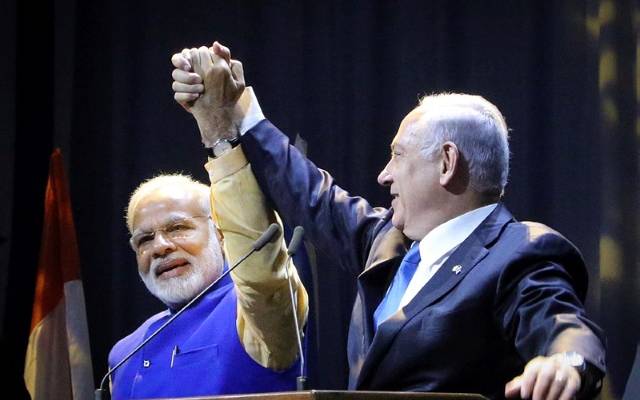In 2017, Modi was the first Prime Minister of India to visit Israel and a year later, Netanyahu visited India.
By Shula Rosen
As thousands of Indian workers arrive in Israel to address the country’s labor supply shortage, it’s clear that the relationship between India and Israel has become closer in the past decade.
Indian national security adviser Ajit Doval arrived in Israel and met with Benjamin Netanyahu, a step that might not have been taken a decade ago, given India’s longstanding non-alignment policy regarding the Israel and Palestinian conflict.
The warming of relations between India and Israel occurred with the election in 2014 when Narendra Modi, the leader of the Bhartiya Janata Party (BJP), was elected Prime Minister of India.
With his election, Modi shifted from the policies of the National Congress party which took a hands-off approach to Israel.
Instead, Modi and Israeli Prime Minister Benjamin Netanyahu met on several occasions and Netanyahu recognized India as an important ally.
In 2017, Modi was the first Prime Minister of India to visit Israel and a year later, Netanyahu visited India.
Modi’s closeness with Netanyahu marked a departure from India’s longstanding policy of neutrality in the conflict between Israel and the Palestinians, and at one point, the two heads of state were photographed walking barefoot on an Israeli beach.
In the aftermath of the Hamas invasion of Israel and the October 7th massacre, India condemned the terrorist group and abstained from a UN Vote that would pressure Israel into a ceasefire early in the war.
Dr. Oshrit Birvadker, an expert on foreign and defense policy, a senior fellow at the Jerusalem Institute for Strategy and Security, and a member of Forum Dvorah said that India’s denouncing Hamas was not surprising but nevertheless was noteworthy given India’s long history of not taking sides in the Middle Eastern conflict.
Before the war, US President Joe Biden discussed a plan to link India to Europe by way of the Middle East through a large rail and shipping network.
The plan was unveiled at the G20 Leaders event on the Partnership for Global Infrastructure and Investment that took place in India and would involve India, Saudi Arabia, the United Arab Emirates, Jordan, Israel, and the European Union, with the US sponsoring the event.
However, the outbreak of war put the plan on hold.
India and Israel have discussed cooperating in the area of defense technology as India wants to ensure it is protected from adversaries in the region, including China.
